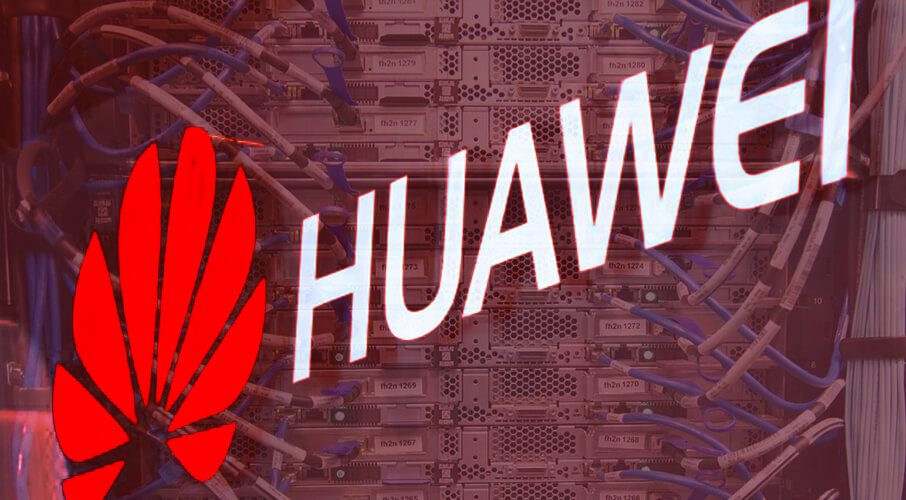 The future lies with 5G but we must thoughtfully manage the associated vulnerabilities. Both Huawei’s behaviour and that of its Chinese Communist Party overlords is such that Canada should follow the US, Australia and New Zealand and forbid Huawei’s involvement in 5G. This op-ed appeared originally as part of the Toronto Star’s ‘The Big Debate’ series.
The future lies with 5G but we must thoughtfully manage the associated vulnerabilities. Both Huawei’s behaviour and that of its Chinese Communist Party overlords is such that Canada should follow the US, Australia and New Zealand and forbid Huawei’s involvement in 5G. This op-ed appeared originally as part of the Toronto Star’s ‘The Big Debate’ series.
By Brian Lee Crowley, August 20, 2019
5G is the 5th Generation of wireless technologies that have resulted in the evolution of mobile devices from unwieldy radio-telephones to sophisticated tiny smartphones and tablets. Once fully in place 5G, however, will be a significant leap in speed and capacity, eventually enabling the long-foretold Internet of Things.
Driverless cars will be possible because they need to communicate wirelessly with each other in real time to avoid accidents. Trucks and other heavy equipment and possibly even massive infrastructure like electricity distribution and their operators can be miles apart. We will all send evermore sensitive and confidential data across the 5G network.
Because our safety, privacy and prosperity will depend on the security and reliability of 5G, who supplies the network equipment is a real national security concern. Malign actors with clandestine access to the system can pose both passive and active dangers. Passive actions include things like data theft; active ones include interfering with the networks and devices reliant on 5G for their operation.
Huawei, is among a handful of suppliers worldwide (including Qualcomm, Samsung, Ericsson and Nokia) that are able to provide the “backbone” equipment for 5G networks. Here is where the passive and active dangers reside.
A supplier could, for example, use the system’s inherent complexities to obscure features causing data passing through the system to be copied and sent on to a distant location for analysis, compromising commercial or military secrets. Hidden “back doors” might allow those with the key to seize control of networks and devices like stock markets, heavy equipment or electricity grids.
Precisely because of 5G’s complexity, no one can certify backbone equipment “safe,” especially since changes might be introduced later by repairs and software upgrades, or gradually through those hard-to-discover back doors. That makes the trustworthiness of suppliers paramount.
By now Canadians are painfully aware that China is a rising power and, under the Communist Party (CCP), is a strategic rival of the West’s and its values of democracy, human rights and the rule of law. Where 5G is concerned, everything hangs on whether we should regard Huawei as a Trojan horse for the interests of a CCP regime seeking geo-strategic advantage.
Here is what we know. Huawei, whose ownership is non-transparent, maintains close and co-operative relations with the People’s Liberation Army which Huawei has gone to some lengths to obscure. Its impressive growth is largely due to Beijing’s policy of promoting national champions in strategic sectors. Let us not forget that Beijing kidnapped two of our citizens and threw up barriers to our exports all because we had the temerity to arrest a single Huawei executive in accordance with Canadian law. This is no arm’s length relationship.
Huawei has been accused by various national security agencies of being intimately involved in intellectual property theft through electronic espionage. Huawei equipment has been credibly implicated in passive data theft operations. Finally, Chinese law compels companies like Huawei to assist with state intelligence work and to maintain Communist Party cells in their management structure. There is every reason to regard Huawei as an agent of the CCP regime, protestations to the contrary notwithstanding. Additionally, the quality of Huawei’s engineering is poor, introducing further, possibly unintended, vulnerabilities that could be exploited by Russia, Iran, North Korea and others.
Ottawa already forbids Huawei equipment from federal government telecoms networks for exactly these security reasons. Having banned Huawei from 5G on security grounds, Washington is unlikely to regard with equanimity a Canadian back door, meaning that the integration of Canadian and American networks might well be compromised as might our invaluable national-security intelligence sharing through the Five Eyes network.
Canada must engage China but must energetically defend our vital interests and foundational values while doing so. Vigilance is compatible with further engagement: Australia and New Zealand, which have free trade agreements with Beijing, have banned Huawei from 5G.
The future lies with 5G but we must thoughtfully manage the associated vulnerabilities. Both Huawei’s behaviour and that of its CCP overlords is such that Canada should follow the US, Australia and New Zealand and forbid Huawei’s involvement in 5G.
Get this wrong and the bitterness of compromised safety will remain long after the sweetness of low price is forgotten.
Brian Lee Crowley is managing director of the Macdonald-Laurier Institute.




